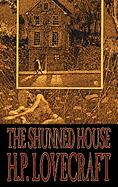Greetings, all. What follows is a summary of some of those rules of editing I bring with me from my print journalism background.
While print is following the 8-track into oblivion, many lessons learned in the land of the five W's carry into any form of prose writing. So, let me sum up what my decade-plus of banging keys on a deadline taught me.
Ask for criticism – In a newsroom this comes with the coffee-stains and bottles of Tums. Once you’re writing for yourself it’s easy to be timid. An average writer will worry that readers will hate their story. What makes a good writer is the hunger to hear that hate and use it to make their writing better.
One caveat: If someone has a specific gripe “I think Mr. Thomason is unbelievable and flat as a character” – look at it and see if you need to fix it. If they say “I didn’t like it, horror stories suck,” then ignore them. That’s an opinion, not a criticism. In either case, try not to take it to heart; use it.
Adverbs - To steal from Stephen King’s “On Writing” (which you should own, read and memorize), kill these buggers whenever you see them. ‘Softly, angrily, dishearteningly’ and so on and so forth. Your dialogue and narration will set the scene and the mood – show the emotions people are feeling, don’t tell the reader what they are. They make a sentence weak, and that leads us into the next point.
Don’t use passive verbs – This is one of the nicest habits I brought out of journalism – avoidance of the verb “be” in all its many forms. Stay away from it. It’s evil. Never Trixie was ignored by Frank, always Frank ignored Trixie.
Be direct, get it done - You must be direct as a reporter, unless you’re writing a column, and that’s another great benefit of working in the industry. Brevity really is the soul of wit. You can embellish at points, but most stories are better for the absence of well-written but baroque prose.
Papers also teach that deadlines are real. You need to get it done, but don’t feel like it? Do it anyway. Your readers don’t want to hear that you were under the weather or depressed over the final episode of your favorite show. It’s a job, treat it like one and you’ll get better at it.
Grammar is not your enemy - You’re a creative writer, so you can break the rules, but avoid it if you can. I’m prone to sentence frags, because I think and talk that way. I left you one up above; did you notice it?
‘Softly, angrily, dishearteningly’ and so on and so forth.
That’s a frag. I’d go back and edit it but I like frags in some situations.
Determine your grammatical weak points and work on them. The same goes for punctuation. Run out and find a copy of Diana Hacker’s A Writer’s Reference – the spiral-bound one. Every writer should have one.
Be willing to cut - We all love our stories, but when it’s rewrite time, cut that word count down. If a section doesn’t advance the story, or define something vital, it needs to shrink or go away entirely.
And now, for a guest appearance by H.P. Lovecraft as editing victim of the day:
“To declare that we were not nervous on that rainy night of watching would be an exaggeration both gross and ridiculous. We were not, as I have said, in any sense childishly superstitious, but scientific study and reflection had taught us that the known universe of three dimensions embraces the merest fraction of the whole cosmos of substance and energy. In this case an overwhelming preponderance of evidence from numerous authentic sources pointed to the tenacious existence of certain forces of great power and, so far as the human point of view is concerned, exceptional malignancy. To say that we actually believed in vampires or werewolves would be a carelessly inclusive statement. Rather must it be said that we were not prepared to deny the possibility of certain unfamiliar and unclassified modifications of vital force and attenuated matter; existing very infrequently in three-dimensional space because of its more intimate connection with other spatial units, yet close enough to the boundary of our own to furnish us occasional manifestations which we, for lack of a proper vantage-point, may never hope to understand.” (-- The Shunned House)
Photo: Alibris.com
I know, it’s Lovecraft. Grammatically it’s textbook correct, but let’s rewrite it anyway.
We were scared, I won’t deny it. Neither of us was superstitious, but with science discovering the God Particle this year, who knew? The stories, what we had seen, everything we knew, pointed to something both strange and evil. We didn’t think it was a werewolf or a vampire. We weren’t idiots. But there was something there, something that – just maybe – no one had ever seen before. Something we couldn’t understand from somewhere we couldn’t go.
The good editors among you noted the passage is still in a passive voice, but there’s only so much you can do with Lovecraft. The experiment was to keep as much of the original passage’s meaning - and atmosphere - as we could with as few words as possible.
Now go write something and have fun while you do. Then edit the heck out of it.
Michael Lane
http://realmichaellane.blogspot.ca/
@Michael_M_Lane on Twitter



No comments:
Post a Comment